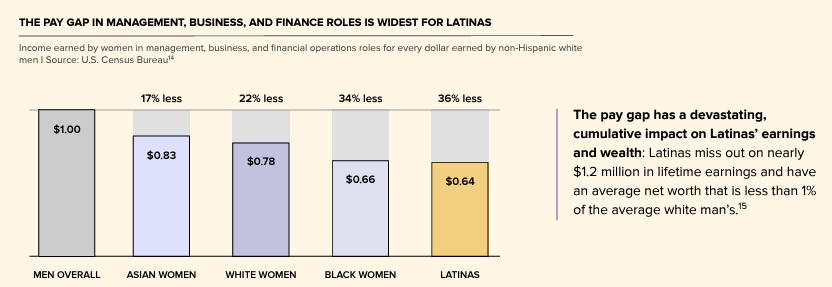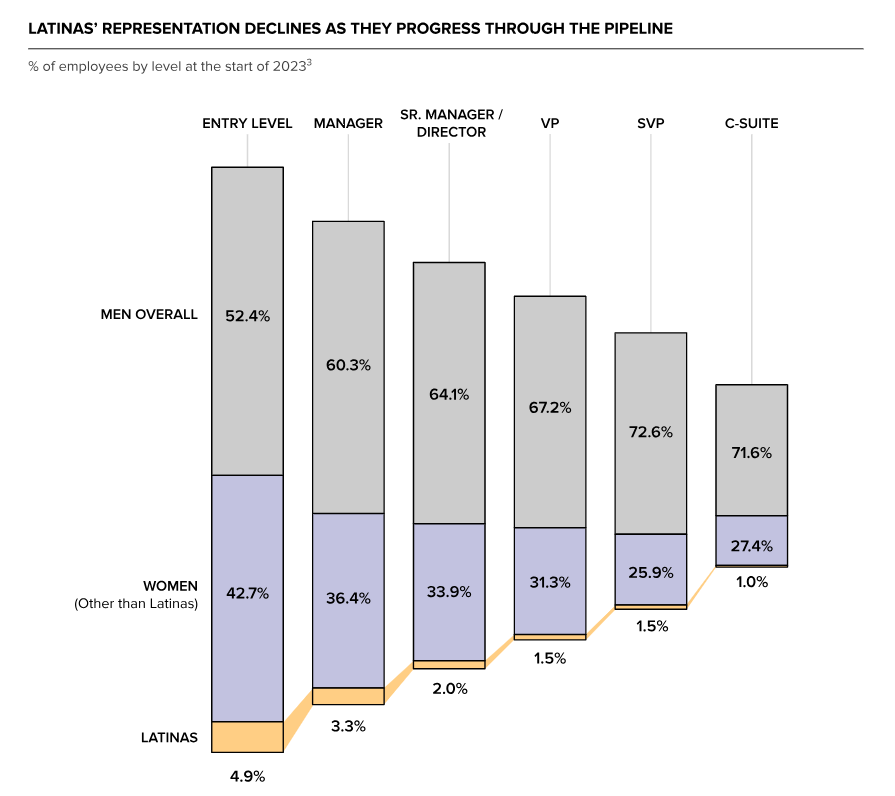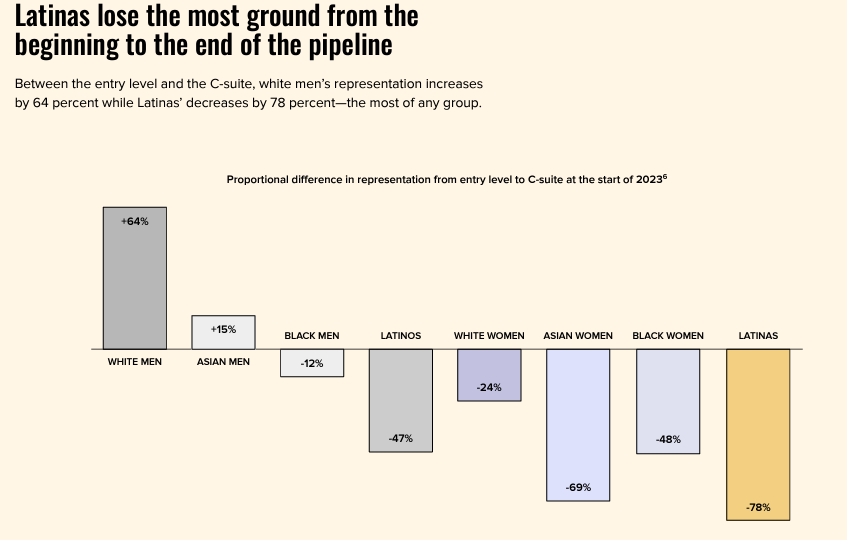Latinas are the least represented group in corporate America with no hope of catching up without serious changes from employers and managers, according to a new report by Sheryl Sandberg’s LeanIn.org. Latinas make up only 1% of C-Suite executives.
As a Latina in Corporate America for 30+ years, it is discouraging to see these numbers. However, the numbers are not surprising. I am usually the only Latina at any given time in a business meeting, including the companies I have worked for, their customers, and their business partners.
In 2023, between the entry level and the C-suite, white men’s representation increased by 64 percent while Latinas’ decreased by 78 percent—the most of any group
- For every 100 men promoted from Entry level to Manager, only 74 Latinas are promoted. Even though, Latinas ask for promotions as often as men do.
- Alongside Asian women, Latinas have the lowest promotion rates of any group of women from Director to VP
Across the entire U.S. workforce, Latinas experience the largest pay gap of any group of women: they earn a mere 52 cents for every dollar a non-Hispanic white man earns.

- Despite historically asking for raises just as often as other women, Latinas are less likely to receive them. For example, only 1 in 4 reported receiving a raise in 2023, compared to 1 in 3 women overall
- Across the entire U.S. workforce, Latinas earn 52 cents for every dollar a non-Hispanic white man earns. This pay gap is often attributed to Latinas working in jobs and industries that pay less. But even within corporate America (see chart above), Latinas working in business and finance earn 36 percent less than white men—the least of any group of employees
Performance Bias Harms Latinas’ Advancement
Performance bias is based on deeply rooted—and incorrect—assumptions about people’s abilities. For example, women are often stereotyped as less competent than men, and Latino/a people tend to be stereotyped as less skilled than white people. Latinas face a compounding version of these biases, which makes it harder for them to get hired and promoted
Latinas remain ambitious despite the low representation across the pipeline. They are more interested in being promoted to the next level and in becoming senior leaders than white women and women overall
Despite being ambitious, Latinas receive less of the encouragement and recognition critical to getting ahead at work:
- Latinas are less likely to have senior colleagues advocate for them and celebrate their accomplishments
- Latinas are less likely to have their managers invest in them professionally
- They are also less likely to say that their managers ensure they get credit for their work and show interest in their career advancement
What can companies do?
- Track key outcomes and metrics by gender and race. Track key outcomes like hiring, promotions, and attrition rates by both gender and race, so they can see how Latinas are moving through their pipeline. The same rigor should be applied to tracking access to mentorship, sponsorship, and other professional development programs
- Widen your talent pool to include more Latinas.
- Expand recruiting efforts by proactively seeking candidates from Hispanic-serving colleges and professional organizations
- Make sure the hiring process is not inadvertently deterring talented Latinas. This can include using software that ensures job descriptions are welcoming to all groups and, when possible, including Latinas in the interview process.
- Address the biases Latinas face in hiring and promotions Latinas experience unique biases that make it harder for them to be hired and promoted. For example, they are often stereotyped as being less interested in and less well suited for managerial and leadership roles. Prioritize debiasing these processes:
- Make employee evaluations less subjective
- Send “bias reminders” before every review cycle or hiring process explaining how biased thinking unfairly impacts decision-making
- Include a “bias monitor” in meetings where candidates are discussed to avoid subjective evaluations and keep conversations focused on the core criteria for the role
- Increase the focus on sponsorships. Sponsorship accelerates careers. But while 3 in 4 companies offer formal mentorship and sponsorship programs, only 1 in 3 Latinas have an active sponsor. This gap points to the need for employers to increase Latinas’ access to these programs
You can read the full report here.


